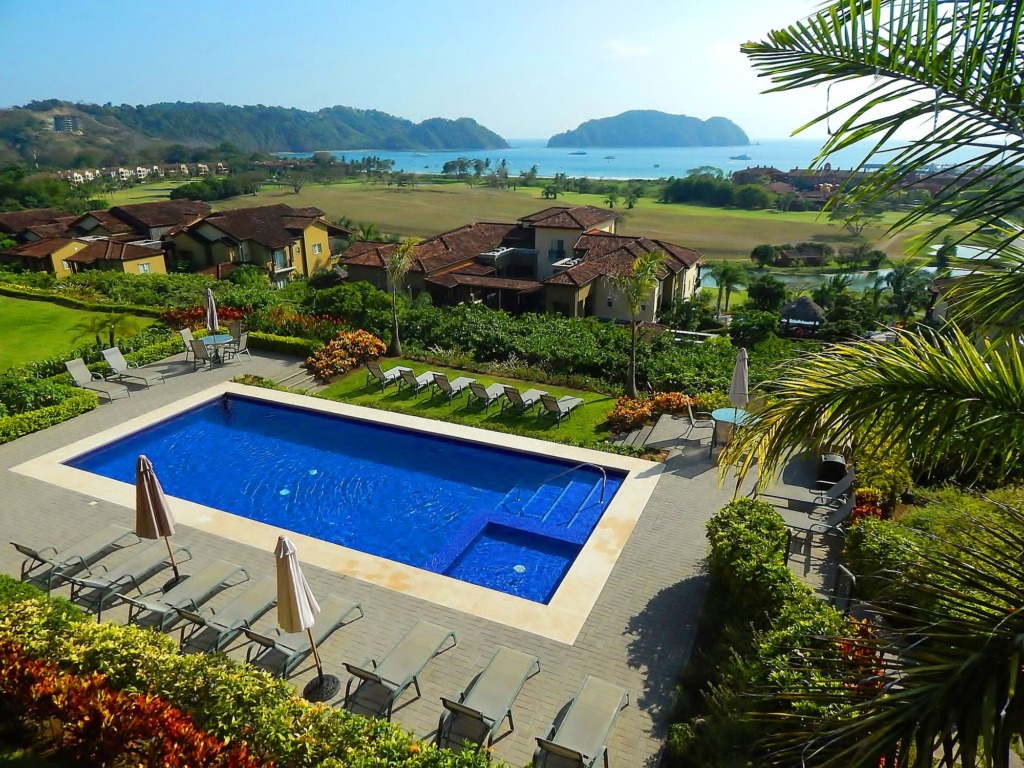Costa Rica, often hailed as one of the most beautiful countries in the world, is not just a paradise for tourists but also an increasingly attractive destination for real estate investors and homebuyers. Whether you are looking for a peaceful beachfront retreat, a luxury villa nestled in the mountains, or an investment property with high rental potential, Costa Rica offers a diverse array of options that cater to all types of buyers. With its rich biodiversity, stable economy, and welcoming atmosphere, it’s no wonder that Costa Rica real estate has become a hot market.
In this guide, we will explore everything you need to know about buying real estate in Costa Rica. From understanding the local market to navigating legal processes and financing options, this article will help you make informed decisions whether you are planning to buy a home for personal use or looking to invest in Costa Rica property investment opportunities.
1. Why Invest in Costa Rica Real Estate?
Economic Stability and Growth
Costa Rica boasts a stable and growing economy, which has led to a consistent rise in real estate values over the past few decades. The country’s economic stability makes it a safe choice for investors looking to buy real estate in Costa Rica. Costa Rica’s tourism sector is one of the main drivers of the real estate market, with thousands of visitors flocking to the country every year. This influx of tourists contributes to the vacation homes and rental properties market, which remains in high demand.
Appeal for Retirees and Expats
Another major reason why people are flocking to Costa Rica is its expat-friendly environment. With its affordable healthcare system, beautiful natural surroundings, and lower cost of living compared to countries like the U.S. and Canada, Costa Rica is a prime destination for retirees. In fact, Costa Rica retirement homes have become a popular choice for those looking to spend their golden years in paradise. Whether you are considering a permanent move or a vacation home, Costa Rica homes for retirees offer the perfect blend of relaxation and modern amenities.
Eco-Friendly Living and Sustainability
Costa Rica is known for its sustainable living practices, and the real estate market has followed suit with a surge in eco-friendly homes. Properties with solar panels, rainwater harvesting systems, and energy-efficient designs are becoming increasingly popular. Eco-friendly homes Costa Rica not only appeal to the environmentally conscious but also promise long-term savings in energy costs, making them an attractive investment.
2. Understanding Costa Rica’s Real Estate Market
Market Trends and Property Values
The Costa Rican real estate market has been experiencing steady growth, with rising demand in both luxury properties and more affordable homes. Whether you are interested in purchasing a beachfront home Costa Rica or a home in the Central Valley, prices vary depending on the location. Coastal areas such as Guanacaste, Tamarindo, and Nosara continue to see the highest demand, especially for beachfront condos Costa Rica and ocean view properties.
As Costa Rica’s popularity increases, so does the value of properties, particularly in tourist-heavy areas. If you are looking for an investment property, Costa Rica real estate listings are filled with options that offer good returns, especially in rental markets near the beach or in cities close to national parks.
Hot Real Estate Locations in Costa Rica
-
Guanacaste: Known for its beaches, Guanacaste is a sought-after region for beachfront homes and luxury villas Costa Rica. Locations like Tamarindo and Nosara are hubs for vacation rentals and have become prime spots for real estate investment Costa Rica.
-
Central Valley: Offering more affordable living, the Central Valley is home to San José, the capital city, and several suburbs. The area offers excellent value for money and is popular among families and those looking to live close to urban amenities without the high price tags of coastal properties.
-
Southern Pacific Zone: With its stunning beaches and laid-back vibe, areas like Manuel Antonio and Dominical are ideal for vacation homes and eco-tourism properties. These locations are becoming more popular with expats seeking a peaceful lifestyle.
3. Types of Properties for Sale in Costa Rica
Costa Rica’s real estate market offers a variety of property types, from affordable homes to luxury estates. Let’s explore the most common types of properties available for sale:
Beachfront Homes
If you’re dreaming of waking up to the sound of waves crashing on the shore, Costa Rica offers some of the most spectacular beachfront homes in the world. Coastal towns such as Tamarindo and Nosara are known for their luxury beachfront properties, which attract both vacation homeowners and investors looking to take advantage of the thriving vacation rental market.
Luxury Villas and Condos
For those looking for an upscale living experience, Costa Rica offers an impressive selection of luxury villas and high-end condos. These properties often feature breathtaking ocean views and high-end finishes, with amenities like private pools, extensive gardens, and easy access to the beach.
Affordable Homes and Land
If you’re on a budget, don’t worry! Costa Rica has many affordable properties available, particularly in areas such as the Central Valley. You’ll find a range of affordable homes for sale in Costa Rica, from charming mountain homes to more modern urban properties near San José. Alternatively, buying land for sale in Costa Rica can be a great way to build your dream home in the country’s picturesque surroundings.
Eco-Friendly Homes
Sustainability is at the heart of Costa Rican culture, and the real estate market reflects this trend. Eco-friendly homes Costa Rica are becoming increasingly popular, especially with expats and investors looking to reduce their carbon footprint. These homes often feature green technologies such as solar panels, rainwater collection systems, and energy-efficient designs.
4. Costa Rica Property Locations You Should Know
Whether you are looking for a vacation home, an investment property, or a permanent residence, Costa Rica offers a variety of locations that suit different lifestyles and budgets. Here are some of the most popular property locations in Costa Rica:
Guanacaste
Guanacaste, located on the Pacific coast, is one of Costa Rica’s most sought-after destinations for real estate investment. Famous for its sunny weather, pristine beaches, and proximity to international airports, Guanacaste remains a top choice for those looking to purchase luxury beachfront homes or vacation rentals.
Tamarindo and Nosara
Tamarindo is one of the most famous beach towns in Costa Rica and is home to many beachfront condos and luxury villas. Nosara, located nearby, offers a more laid-back atmosphere and is known for its eco-friendly developments and ocean view properties. Both areas are perfect for investors looking to tap into the vacation rental market.
San José
Costa Rica’s capital, San José, is an urban hub for both locals and expats. The city offers a variety of real estate options, including affordable homes, condos, and more. San José’s location in the Central Valley makes it an ideal place to live for those who enjoy being close to urban amenities without sacrificing the natural beauty that Costa Rica offers.
5. Legal Considerations for Foreigners Buying Property in Costa Rica
Foreign Ownership Laws
One of the biggest advantages of buying real estate in Costa Rica is that foreigners are allowed to own property under the same terms as local citizens. Whether you’re purchasing a vacation home, an investment property, or beachfront real estate, you can rest assured that Costa Rica’s foreign ownership laws will allow you to proceed without any issues.

Required Documentation
When purchasing property in Costa Rica, you’ll need a few key documents to ensure the transaction goes smoothly. These may include a valid passport, proof of income, and a local tax ID number (which can be obtained through a lawyer). It is essential to work with a real estate lawyer Costa Rica to ensure all paperwork is in order.
The Role of Lawyers and Notaries
In Costa Rica, it is mandatory to work with a bilingual real estate attorney and a public notary during the property transaction. These professionals ensure that all legal requirements are met, the property title is clear, and the transaction is properly recorded.
6. The Costa Rican Property Buying Process
The process of buying property in Costa Rica is straightforward but does require attention to detail. Here’s a quick overview:
-
Find Your Property: Start by researching properties through real estate agents or online listings.
-
Make an Offer: Once you’ve selected a property, you’ll need to make an offer. Your real estate agent or lawyer will help with this process.
-
Due Diligence and Title Search: It’s crucial to ensure the property has a clean title. Your lawyer will perform a title search to confirm the property’s ownership and ensure no liens or disputes exist.
-
Deposit and Escrow: Once the offer is accepted, you’ll make a deposit to show your commitment. The funds are typically held in escrow until the deal is completed.
-
Closing: Closing in Costa Rica involves signing the property transfer documents with a notary. Afterward, the property is officially yours!
7. Financing Your Property Purchase in Costa Rica
Buying property in Costa Rica is possible through various financing options, but it is important to understand that traditional mortgage loans for foreigners are difficult to secure. Most buyers opt for cash purchases or alternative financing methods.
Cash vs. Financing:
While cash transactions are the most common method for buying Costa Rica real estate, there are options for financing. However, it’s important to note that Costa Rican banks typically do not offer mortgages to foreign buyers, especially if they don’t have a local credit history. Many expats prefer paying in cash, but if financing is necessary, buyers can turn to private lenders or work with the property seller for owner financing.
Owner Financing and Private Lenders:
Some property sellers offer owner financing, which allows buyers to pay for the property in installments. This option is especially beneficial for those who do not have immediate access to the full amount in cash. Additionally, private lenders in Costa Rica can provide financing, although these loans often come with higher interest rates than what you would expect from traditional banks.
8. Hidden Costs and Fees When Buying Property in Costa Rica
When purchasing real estate in Costa Rica, it’s essential to be aware of all associated costs and fees that may not be immediately obvious. These hidden costs can significantly affect your budget and plans.
Property Insurance:
For homeowners, obtaining property insurance is a must to protect against natural disasters such as earthquakes, floods, and fires. Insurance rates vary depending on the property’s location and value, but it is generally affordable in Costa Rica.
Closing Costs, Notary Fees, and Taxes:
When closing a property deal in Costa Rica, there are additional costs that buyers need to consider, such as closing costs, notary fees, and stamp taxes. Closing costs usually range from 3-5% of the property price, including legal fees and registration fees.
Additionally, Costa Rica has a property transfer tax, which is typically 1.5% of the purchase price. A notary fee for recording the transaction and an escrow fee for securing the funds also apply.
Ongoing Maintenance Costs:
Homeowners should also budget for ongoing maintenance costs. This can include anything from landscaping to the upkeep of the home’s systems (water, electricity, etc.), particularly for larger properties like luxury villas Costa Rica.

9. Real Estate Investment Opportunities in Costa Rica
Costa Rica offers some lucrative real estate investment opportunities, especially for those interested in the vacation rental market and properties with strong return on investment (ROI) potential.
Vacation Rentals:
Thanks to Costa Rica’s strong tourism industry, the vacation rental market has flourished in recent years. Many buyers purchase vacation homes or beachfront properties Costa Rica with the intent to rent them out to tourists. Locations like Tamarindo, Nosara, and Manuel Antonio are particularly popular for short-term rentals, with consistent demand from international visitors.
Land Investment:
For investors looking to take on a larger project, land for sale in Costa Rica offers significant opportunities. Purchasing land in up-and-coming areas and developing it can lead to high returns, particularly in coastal or forested areas that are increasingly becoming tourist destinations. Additionally, Costa Rica’s eco-friendly development trend creates opportunities for sustainable projects.
Commercial Properties:
Costa Rica also presents opportunities for investing in commercial real estate. With a growing economy and influx of tourists, there is a demand for commercial spaces such as office buildings, restaurants, and retail spaces. Many entrepreneurs look to rent these spaces, contributing to a healthy commercial property market.
10. Costa Rica Real Estate Market Predictions for 2025
Looking ahead, Costa Rica’s real estate market is expected to continue growing. The demand for beachfront homes, eco-tourism properties, and luxury estates is projected to increase as Costa Rica remains a top destination for tourists and expats alike.
Growth Areas:
The Central Pacific Coast is expected to see significant growth, especially in areas like Jacó and Manuel Antonio. These areas are already known for their strong real estate markets and are likely to see more buyers looking for vacation homes and luxury rentals. Similarly, Guanacaste remains one of the hottest spots for beachfront real estate Costa Rica.
Increased Demand for Eco-Friendly Homes:
With Costa Rica’s commitment to sustainability, eco-friendly homes are expected to see increased demand. Investors and homebuyers looking for sustainable real estate will continue to drive this trend, making eco-tourism properties highly attractive for future development.
The Impact of International Investment:
As global economic conditions improve, more international investors are expected to purchase real estate in Costa Rica. This influx will continue to push the market towards higher property values, especially in popular coastal towns.
11. Residency and Tax Benefits of Owning Property in Costa Rica
Owning real estate in Costa Rica can provide you with more than just a beautiful home—it can also grant you residency benefits and tax advantages.
Residency by Investment:
Costa Rica offers a residency by investment program for those who purchase real estate. By investing in Costa Rica real estate worth at least $150,000, foreign buyers can apply for residency. This program attracts investors who are looking for a second home or a more permanent residence in Costa Rica.
Tax Benefits for Property Owners:
Costa Rica has several tax benefits for property owners. For example, property taxes are relatively low, with a general rate of 0.25% of the property’s registered value. Additionally, the country offers tax incentives for sustainable projects, which can reduce your overall tax burden.
12. Moving to Costa Rica: What You Need to Know About Relocation
After purchasing property in Costa Rica, many foreign buyers choose to relocate permanently. Costa Rica’s welcoming atmosphere and expat-friendly policies make it an ideal place to start a new life.
Cost of Living:
The cost of living in Costa Rica is significantly lower than in many North American or European countries. Housing costs, healthcare, and food are much more affordable, making it an attractive destination for retirees and remote workers.
Healthcare System:
Costa Rica has a high-quality healthcare system, with both public and private options available. The public system, Caja Costarricense de Seguro Social (CCSS), provides affordable healthcare to all residents. Many expats opt for private insurance to avoid long wait times for non-emergency services.
Education and Transportation:
Costa Rica offers several international schools for families with children, and the country’s public transportation system is efficient and affordable. Additionally, Costa Rica’s road network allows for easy access to both urban and rural areas.

13. How to Protect Your Investment
To ensure your Costa Rican property remains a profitable and secure investment, it’s essential to take steps to protect it.
Property Management Services:
For those who are purchasing vacation rentals or investment properties, hiring a local property management service is a smart move. These services handle everything from tenant management to maintenance, ensuring that your property remains in top condition and generating rental income.
Insurance and Liability:
It is crucial to purchase property insurance to protect against natural disasters, such as earthquakes, floods, or storms. Costa Rica is located in an active seismic zone, and securing your property with proper insurance coverage is necessary for peace of mind.
14. Conclusion
Costa Rica offers one of the most dynamic and attractive real estate markets in Latin America. Whether you are looking for a beachfront home, a luxury villa, or an investment property, the country provides a diverse range of options to suit every buyer’s needs.
With its stable economy, natural beauty, eco-friendly developments, and expat-friendly policies, Costa Rica continues to be a premier destination for those looking to buy real estate. Whether you’re seeking a vacation home, planning to relocate permanently, or looking for a profitable real estate investment, Costa Rica has something for everyone.
Now that you’re equipped with the knowledge about the Costa Rican real estate market, it’s time to start exploring your options. Don’t hesitate to consult with a trusted real estate agent or lawyer to make sure you navigate the process smoothly and confidently. Your dream home or investment in Costa Rica is just one step away!
More Related Informational Content:
https://smartrealtyguide.com/6-cap-rate-secrets-maximize-investment/
https://smartrealtyguide.com/7-shocking-truths-quitclaim-deeds-explained/
https://smartrealtyguide.com/7-secrets-to-choosing-the-right-commercial-real-estate-broker-vs-agent/






